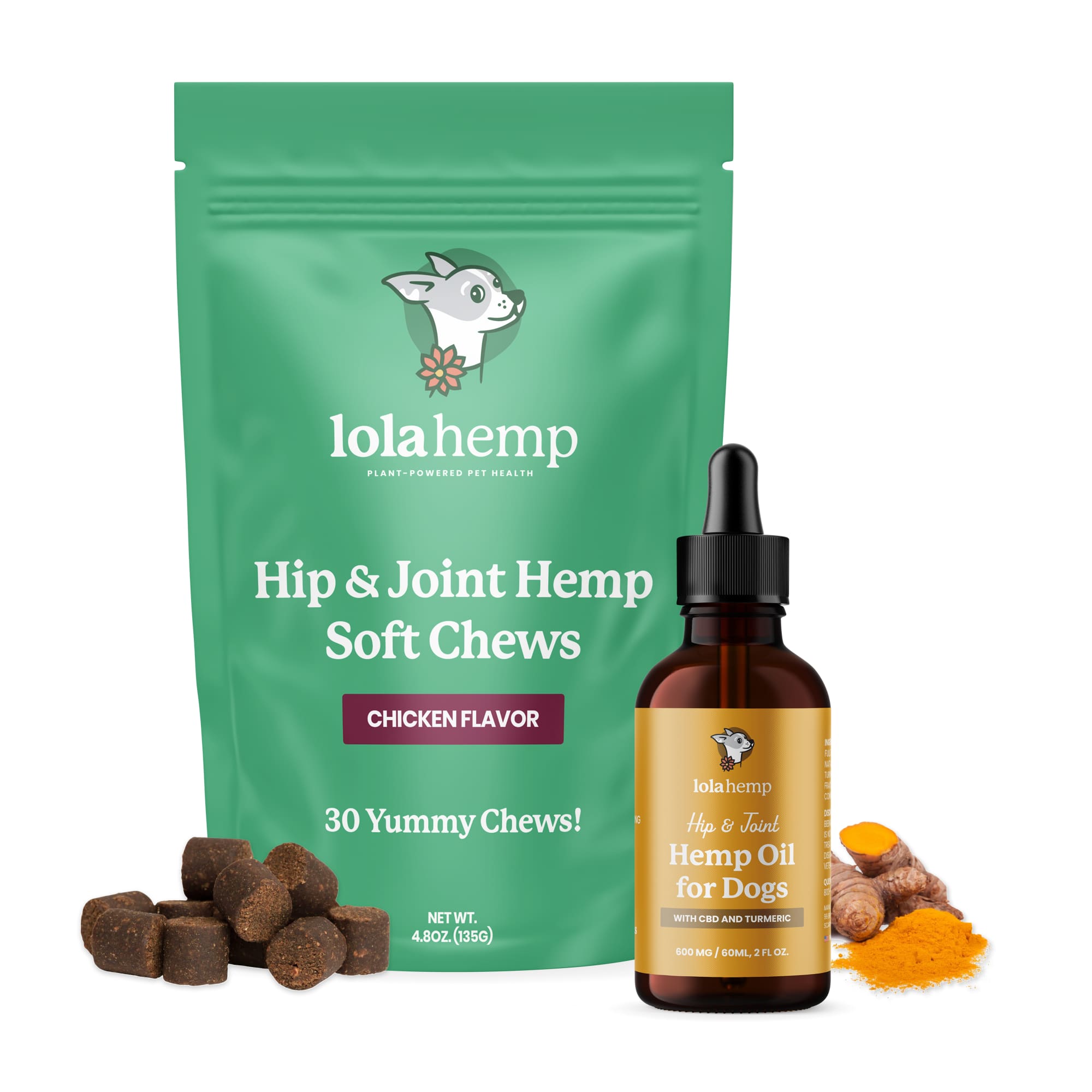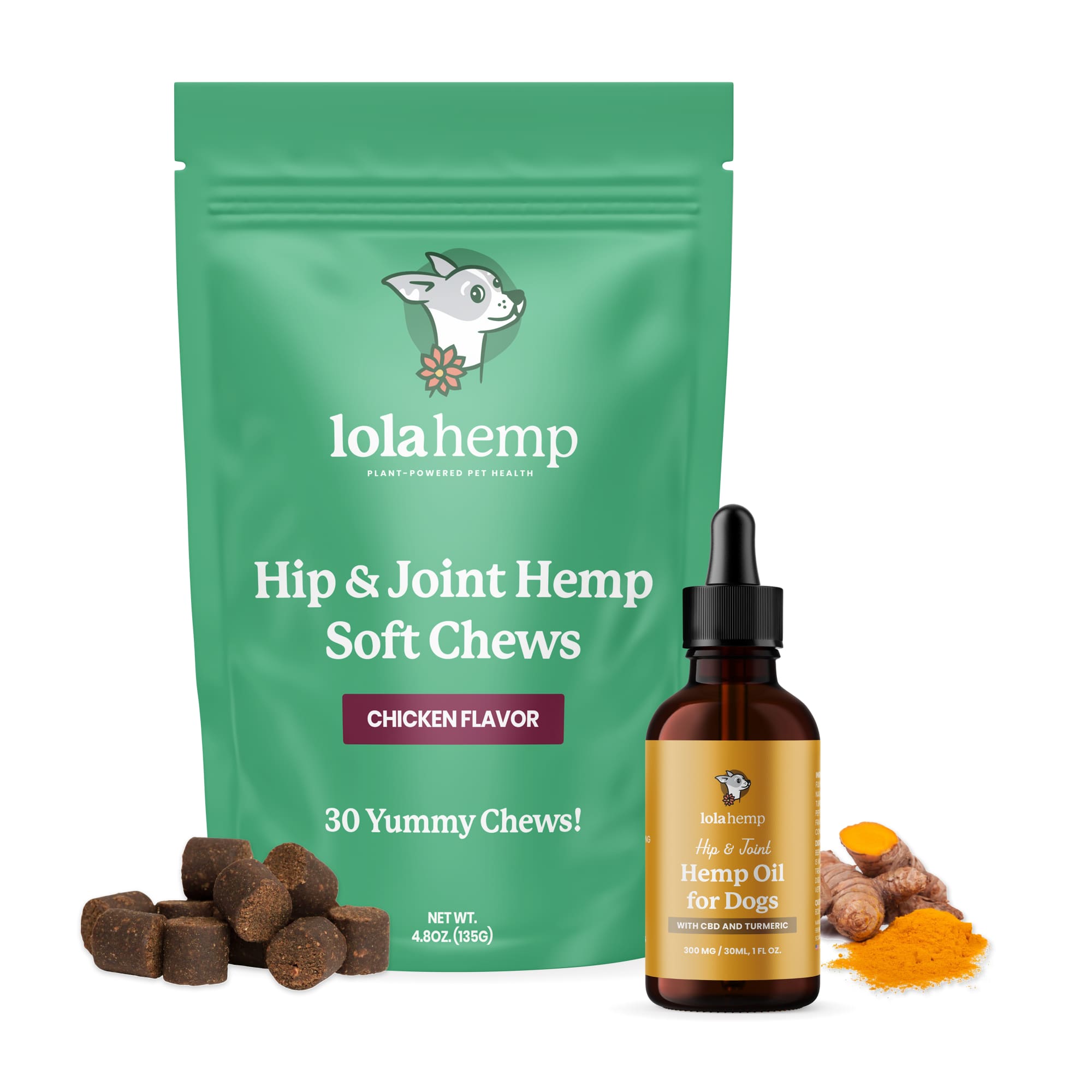Ginger is a popular spice known for its soothing, anti-inflammatory, and antioxidant properties in humans. But can it help dogs the same way? And more importantly—is it safe?
Further, ginger comes in many forms. Are all forms of ginger safe for dogs, or are some better than others? Many household foods can be dangerous to dogs, especially in large amounts.
Let's find out how safe ginger can be for dogs, what the risks are, what it could do to benefit your dog, and more.
Is Ginger Safe for Dogs?
Yes, in most cases, ginger is safe for dogs when given in small amounts. Fresh ginger root—grated, finely chopped, or steeped in water—can offer wellness support without harming your pup.
Make sure to either soften or finely chop the ginger before feeding it to your dog because it can pose is a choking hazard. It's wise to mince ginger and add it to your dogs food to ensure that it's small enough and they consume the amount that you want them to.
Ginger is not toxic to dogs and is even used in some veterinary herbal formulations. Still, "safe" doesn’t mean "risk-free"—so moderation and common sense are key. Don't toss a chunk of ginger to your dog and let them have at it.
Be careful, chop it finely, and ensure that you don't give them too much (dosages discussed below).
Can Ginger Be Bad for Dogs?
Yes, ginger can be bad for some dogs, specifically. It can also be bad for all dogs when they're overfed ginger.
Dogs with certain disorders, or dogs on medications might experience significant adverse side effects. If your pet has any health issues or is taking medication for anything, it's wise to discuss ginger with your veterinarian. While side effects or drug interactions are relatively rare, they can still occur and it's not ever worth it to take a risk with your pet's health.
- Too much ginger can upset the stomach: While it’s often used to soothe nausea, too large a dose can cause the opposite effect—vomiting, diarrhea, or discomfort.
- Dogs with bleeding disorders: Ginger has mild blood-thinning properties, which could increase bleeding risk in dogs with clotting issues or those on anticoagulant medication.
- Pregnant dogs: Ginger may stimulate uterine contractions and should be avoided during pregnancy unless directed by a veterinarian.
- Medication interference: Ginger may interact with certain meds (like NSAIDs or diabetes medication), so check with your vet first if your dog is on any treatment plan.
Ginger's key compound ([6]-gingerol) can increase the risk of bleeding or influence blood sugar medication negatively in the dog's body, leading to a variety of potential risks for some dogs.
So, properly-dosed ginger can be a great addition to your dog's diet when they're not experiencing health issues. In all cases, it's best to discuss the addition of ginger to your dog's diet with your veterinarian.
What Are the Benefits of Ginger for Dogs?
When used responsibly, ginger can provide a few powerful benefits for your dog’s wellness routine.
The primary benefits of ginger for dogs are believed to be support for the inflammatory response (joint stiffness, discomfort) and digestive relief. Studies are also investigating the calming and antioxidant effects of ginger on dogs. Early research is encouraging, but more study is needed to fully understand the extent of ginger's benefits for dogs.
- Anti-nausea and motion sickness support: Ginger can help calm a queasy stomach—useful before long car rides or after surgery. One study found that ginger reduced post treatment nausea in dogs.
- Calming and stress relief: A shelter study showed that the scent of ginger helped dogs relax, bark less, and sleep better.
- Natural inflammation support: Ginger contains compounds like gingerol and shogaol, which may support dogs with joint stiffness or inflammatory conditions.
- Antioxidant properties: These help fight free radicals and may support long-term cellular health.
These benefits will vary from dog to dog, and they should be considered as part of a long-term wellness plan rather than a quick fix. The fastest results will likely come in the form of nausea-relief and, potentially, calming, which could come in under an hour if it's effective for your dog.
How Much Ginger Should You Give Your Dog?
Never give your dogs a whole knob or root of ginger unattended; ginger is concentrated and can cause digestive upset in your dog or, even worse, pose a serious choking hazard. Talk with your veterinarian and see if ginger is
If your vet gives the okay, start with a very small amount. Here's a general guideline for fresh ginger root (not dried or powdered):
- Small dogs (under 20 lbs): No more than 1/4 teaspoon, mixed into food
- Medium dogs (20–50 lbs): Up to 1/2 teaspoon
- Large dogs (50+ lbs): 3/4 teaspoon max
Always start small to monitor for adverse reactions. You can offer it once daily, or as-needed for travel or specific use cases. Don’t feed ginger every day long-term unless under veterinary guidance.

Tip: Grate it fresh and mix it into wet food or broth—just make sure your dog actually likes the taste first!
So, Is It Worth It to Give Ginger to Your Dog?
For many dogs, yes—ginger can be a natural, affordable way to support digestion, stress, and the inflammatory response when used properly. It’s not a miracle cure, and it’s definitely not right for every dog, but it’s a tool worth having in your holistic toolkit.
As always, speak with your veterinarian before introducing new herbs or supplements to your dog’s routine—especially if they’re on medications or managing a health condition. But for most healthy pups, a little ginger gets the green light.
Frequently Asked Questions About Ginger for Dogs
1. Is ginger safe for dogs?
Yes, ginger is generally safe for dogs in small amounts when properly prepared and monitored for any reaction.
2. Can ginger upset a dog’s stomach?
Too much ginger can cause vomiting or diarrhea, so start with very small portions and watch for digestive changes.
3. Can dogs eat raw ginger?
Yes, but it should be finely chopped or grated to prevent choking and aid digestion.
4. Can ginger help with dog nausea or motion sickness?
Yes, studies suggest ginger may reduce nausea and motion sickness in dogs when used appropriately.
5. Which dogs should not eat ginger?
Dogs that are pregnant, have bleeding disorders, or take blood-thinning or diabetes medications should avoid ginger unless approved by a vet.









